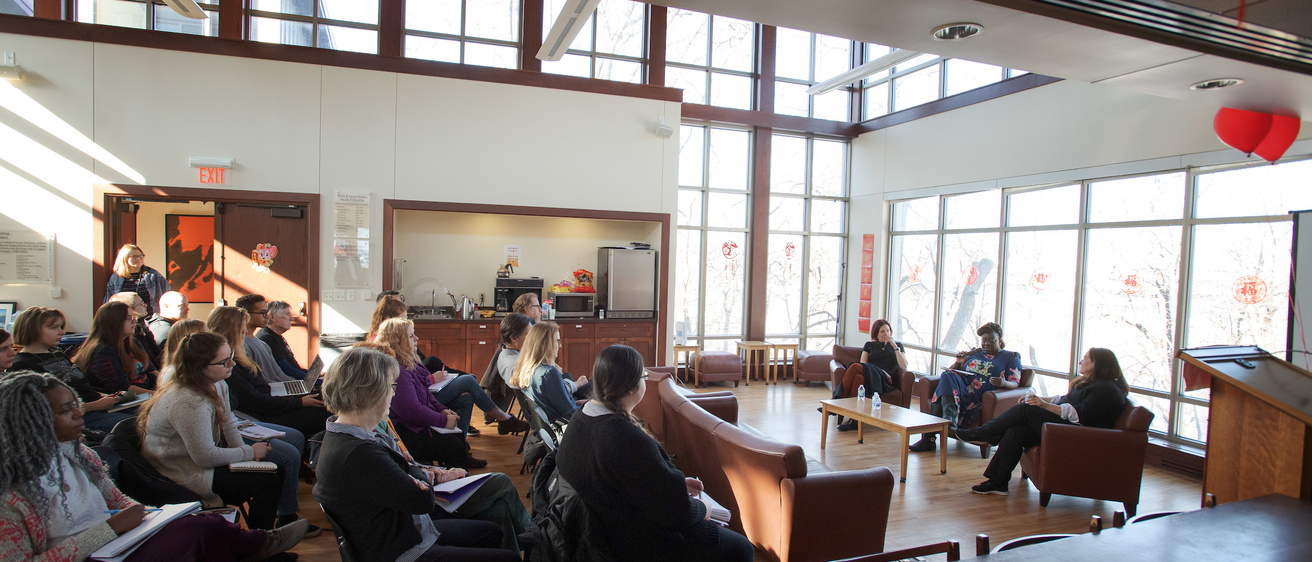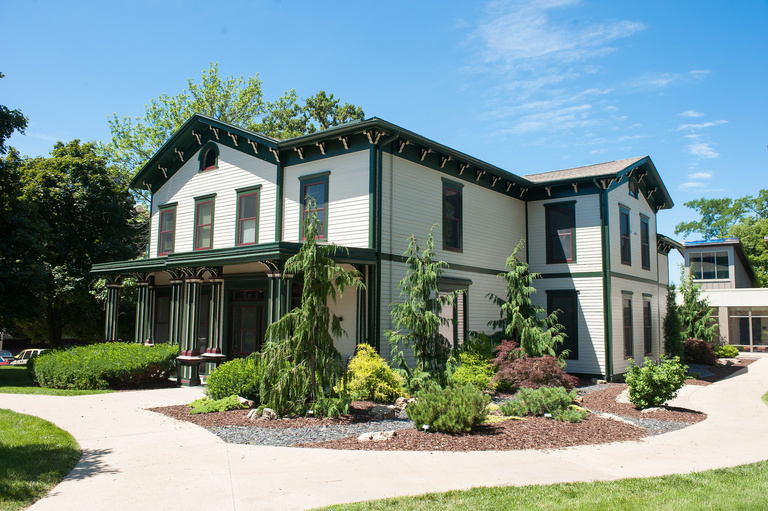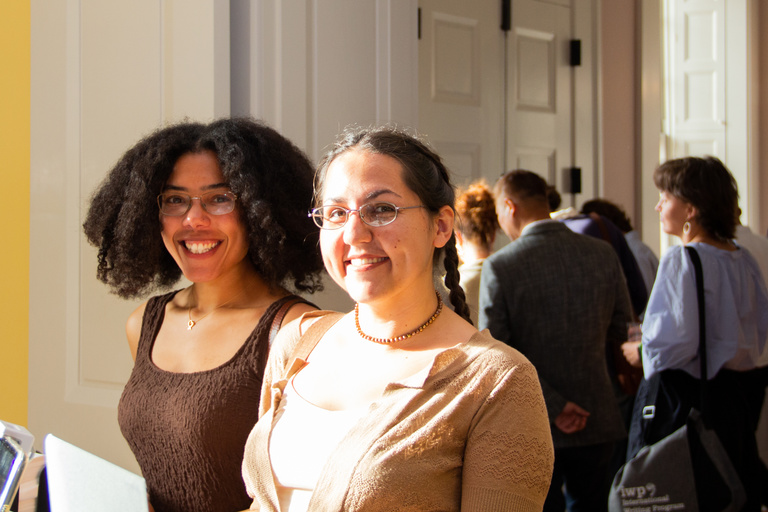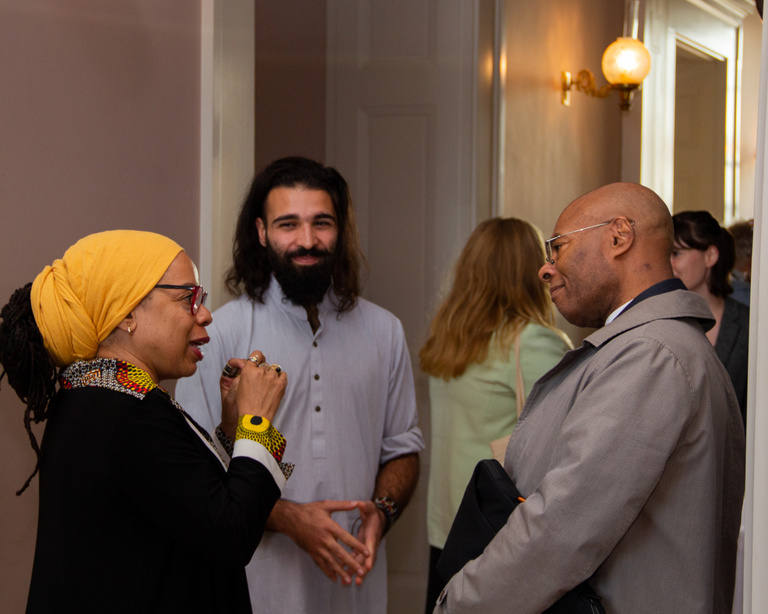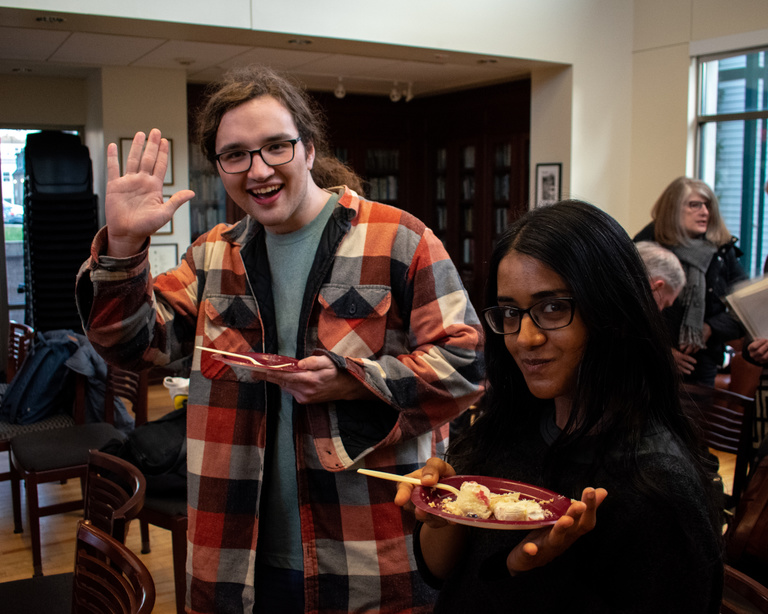About
Founded in 1936, the Iowa Writers' Workshop has been a vital space for writers for nearly 100 years.
The graduate program in Creative Writing at the University of Iowa, known informally as The Iowa Writers' Workshop, offers students a Master's of Fine Arts degree with a concentration in either poetry or fiction. While pursuing this degree, students often start and develop work that later defines them as writers. Since its founding, the program has been home to thousands of remarkable writers and continues to claim among its graduates winners of virtually every major literary award.
Writers' Workshop History
History
1897-1936
The first creative writing class at the University of Iowa ("Verse-making") was offered in the spring semester of 1897. In 1922, Carl Seashore, dean of the Graduate College, introduced a new model for the academic study of the arts when he announced that the University of Iowa would accept creative work as theses for advanced degrees.
The School of Letters began to offer regular courses in writing in which selected students were tutored by resident and visiting writers.
The Workshop was formally founded in 1936, with the gathering together of poets and fiction writers under the guidance of founding director Wilbur Schramm. "It seemed like an idea," said Schramm, "whose time had come."
From the outset, the program enjoyed a series of distinguished visitors, among them Robert Frost, Robert Penn Warren, John Berryman, Dylan Thomas, and Robert Lowell. The early successes of some of the program's first graduates helped the program to gain renown.
1936-1965
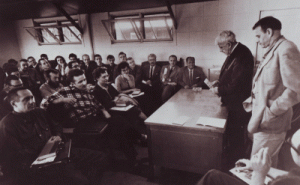
One of the first students to receive an M.A. in creative writing was the poet Paul Engle, who assumed the directorship of the Workshop in 1941. During the 24 years of his directorship, from 1945 to 1965, the Workshop gained a national reputation as the premier program of its kind. During World War II enrollment was no more than a dozen students, but, after the war, it grew to over a hundred students and divided into the fiction and poetry areas of focus that exist today.
In 1962, Engle and his wife, Hualing Nieh Engle, started the country's first translation workshop. In 1967, the couple founded the International Writing Program. In 1976, they were nominated for the Nobel Peace Prize for their work facilitating creative and cultural exchange through the International Writing Program.
1965-2005
The Workshop's prominence continued through the directorships of George Starbuck (1966-1969), John Leggett (1970-1987), and Frank Conroy (1987-2005).
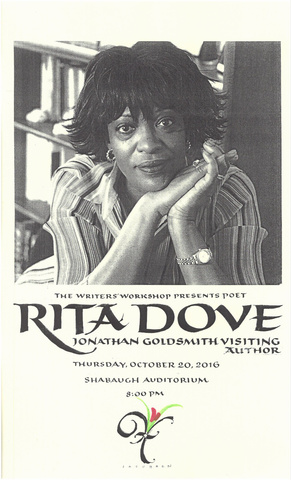
During this time, thousands of writers of great promise and talent graduated from the program, including Jane Smiley, Juan Felipe Herrera, James Alan McPherson, John Irving, Rita Dove, Denis Johnson, Jorie Graham, Yiyun Li, Justin Torres, and Lan Samantha Chang, who eventually took over the directorship.
For decades, Workshop classes were held in temporary, quonset-style army barracks near the Iowa River, where the Iowa Memorial Union stands today. In 1966, the program moved to the English-Philosophy Building, and moved yet again in 1997 to its current administrative home, the Dey House, an historic, Victorian-era home adapted for reuse as an academic building.
2005-Present
Lan Samantha Chang assumed the directorship in 2006. During her time as director, the program has continued to thrive and its writers to receive some of the industry's biggest awards. In addition to steering the program, Chang has worked to raise funds and increase student support. Today, the program offers equal funding to all students. The increase in student support has gone hand-in-hand with a marked increase in the diversity of the students in the program, maintaining the Workshop's place as a vital space for writers.
In 2006, the program's home grew, with the newly-built addition to the Dey House, the Glenn Schaeffer Library and Archives. The new building features a collection of faculty and alumni books as well as an events space, classrooms, and faculty offices.
Philosophy
Though we agree in part with the popular insistence that writing cannot be taught, we exist and proceed on the assumption that talent can be developed, and we see our possibilities and limitations as a school in that light. If one can "learn" to play the violin or to paint, one can "learn" to write, though no processes of externally induced training can ensure that one will do it well.
Accordingly, the fact that the Workshop can claim as alumni nationally and internationally prominent poets, novelists, and short story writers is, we believe, more the result of what they brought here than of what they gained from us. We continue to look for exceptional talent, in our conviction that writing cannot be taught but that writers can be encouraged.
Program News

Tony Tulathimutte Receives the Inaugural 2026 Jack Galef Literary Arts Award
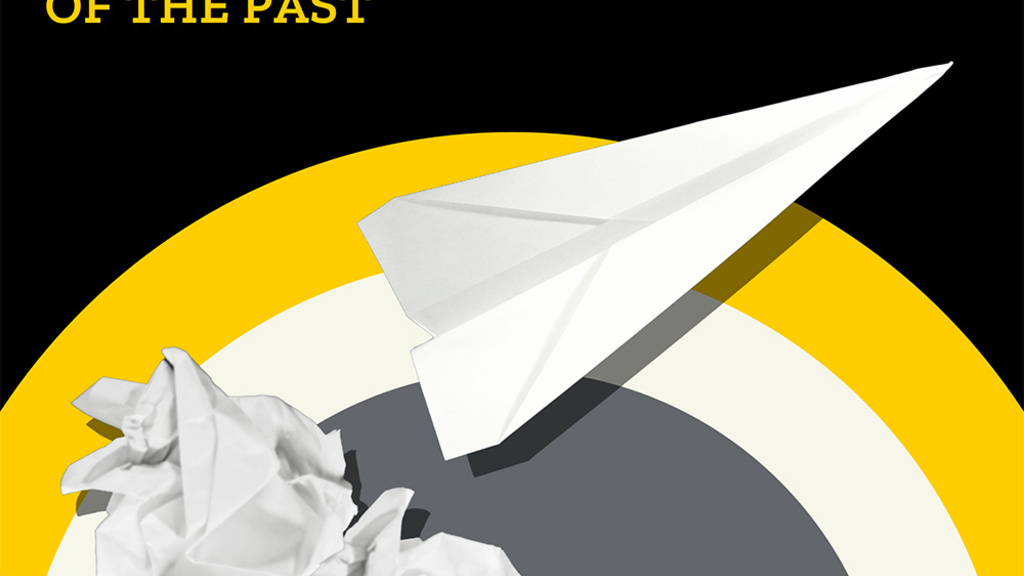
Iowa Writers Revisit Their Origin Stories in Sad Me of the Past Podcast

